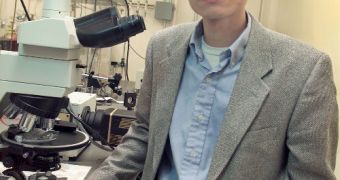Yesterday, the US Deputy Secretary of Energy, Daniel Poneman, announced that the federal government has just allotted more than $122 million for the creation of an Energy Innovation Hub. The organization will be responsible for researching and developing new fuels, using nothing more than sunlight. The money, which will be made available over a period of five years, will be used for establishing the Joint Center for Artificial Photosynthesis (JCAP).
Scientists at the California Institute of Technology (Caltech) and the US Department of Energy's (DOE) Lawrence Berkeley National Laboratory (Berkeley Lab) will be in charge of the new facility. The multidisciplinary team that will operate the JCAP will include some of the brightest minds in this field, the Deputy Secretary said on July 22. The end goal of this initiative is developing an artificial process capable of replicating the operating mechanisms of photosynthesis. This is the natural process that converts carbon dioxide into oxygen, via the use of sunlight.
Thanks to the fact that plants perform photosynthesis, our planet's atmosphere has large amounts of oxygen. Complex life forms are impossible without this particular substance, experts believe. Without photosynthesis, Earth would most likely still be covered only in primitive bacteria and microbes. Researchers at the two research institutes say that creating an integrated solar energy-to-chemical fuel conversion system would be the crowning achievement of the JCAP. They hope that their combined expertise will allow them to reach this objective. Creating energy in this manner could eliminate the need for fossil fuel-based power plants, which pollute the environment extensively.
“The Energy Innovation Hubs have enormous potential to advance transformative breakthroughs. Finding a cost-effective way to produce fuels as plants do – combining sunlight, water, and carbon dioxide – would be a game changer, reducing our dependence on oil and enhancing energy security. This Energy Innovation Hub will enable our scientists to combine their talents to tackle this bold and highly promising challenge,” argues Deputy Secretary Poneman.
“I’m very proud that California has been on the cutting-edge of the clean energy movement. With this award, some of California’s top scientists will continue to lead the way forward by working together to create ‘artificial photosynthesis,’ a process that can emulate the inner workings of plant life to produce a useful transportation fuel we can put right into our cars without further processing. If successful, this concept […] would revolutionize the energy sector. […] This is very exciting,” said upon hearing the news US Senator Dianne Feinstein (D-Calif.).

 14 DAY TRIAL //
14 DAY TRIAL //